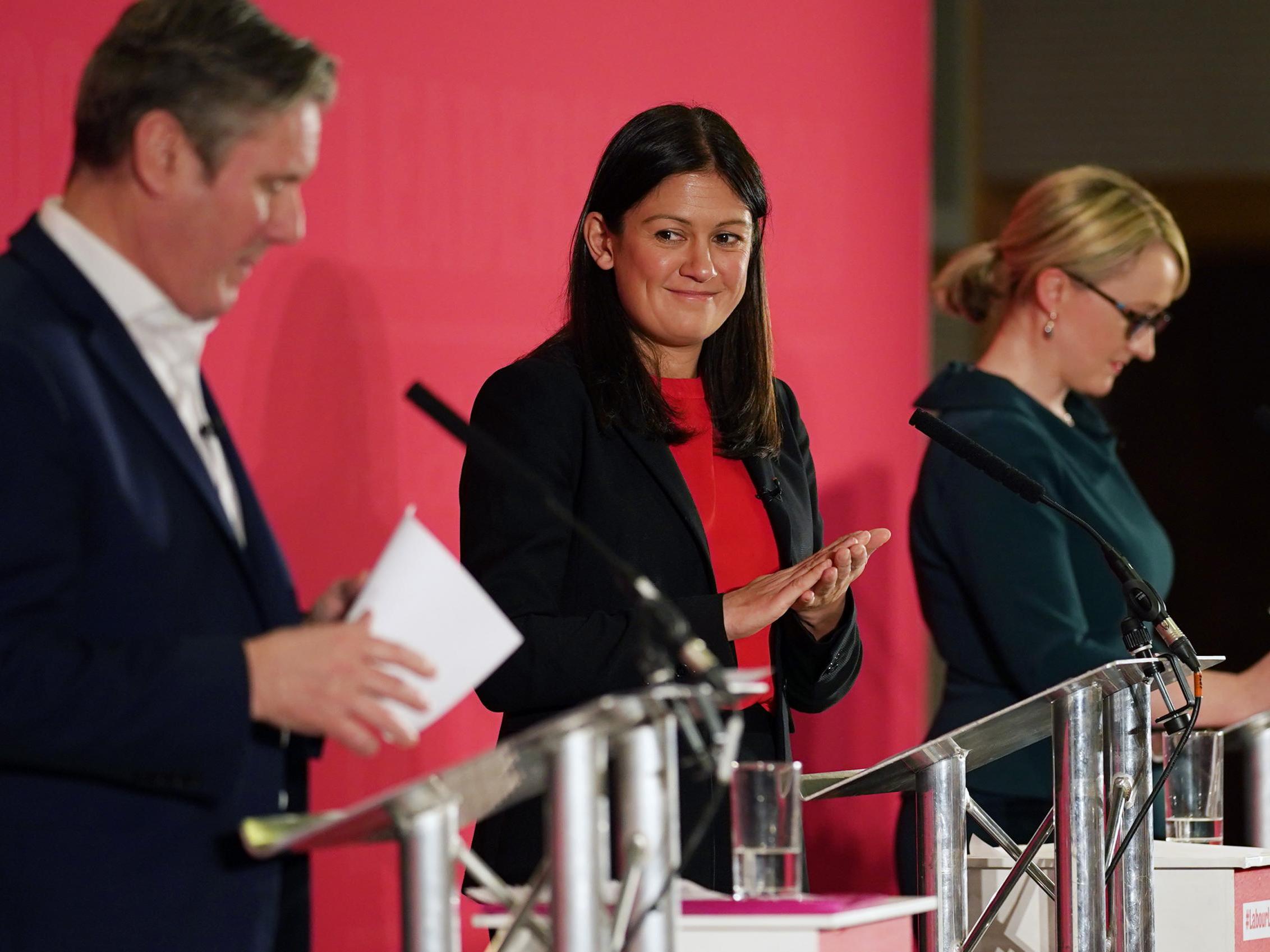Keir Starmer’s new team is looking rosy, but how will they hold up in the battle ahead?
Analysis: From tackling antisemitism to establishing Labour’s credibility on economics once more, the challenges are numerous following Corbyn’s departure, writes Andrew Grice


Keir Starmer enjoyed an unusually free hand when he began shaping his shadow cabinet on Sunday. His first-round knock-out in Labour’s leadership election gave him a clear mandate; if Rebecca Long-Bailey had run him close, he would have felt pressure to allow Jeremy Corbyn’s allies to retain more influence than he did.
The new leader started with few debts to settle. An MP only since 2015, he is something of a lone wolf without a pack of followers now expecting a reward for their loyalty. In contrast, when Boris Johnson formed his government last July, and after December’s election, he had to weigh up the merits of long-standing allies and ambitious new friends.
Starmer promised his top team would “be balanced across the party” and he would not be “badging people by the past”. But his initial appointments, a “shadow C-19 committee” to coordinate the opposition’s response to the coronavirus crisis, will alarm allies of Corbyn. They feared Starmer would marginalise the left and their nightmares might now be coming true.
The new opposition team looks very different to that in the Corbyn era. Lisa Nandy, who came third in the leadership election, was rewarded for her impressive performance with the key job of shadow foreign secretary. She will likely play a key role in trying to win back the confidence of Jewish people alienated by Labour’s failure to tackle antisemitism.
But there was no place in the top team for Long-Bailey, even though Starmer said during the contest he would like both his rivals to take jobs. Long-Bailey is expected to take up a position outside the “inner circle” announced on Sunday.
The most important job of shadow chancellor went to Anneliese Dodds, a relatively unknown but respected junior Treasury spokesperson under John McDonnell who, along with Diane Abbott, stood down from the shadow cabinet. Meanwhile, the Corbyn allies Jon Trickett, Barry Gardiner and Ian Lavery were sacked. Dodds, who backed Starmer for the leadership, will have the huge task of rebuilding Labour’s credibility on the economy once the immediate public health crisis ends and the former shoots back to the top of the political agenda.
Another relatively low profile figure and Starmer supporter, Nick Thomas-Symonds, is the new shadow home secretary. The former lawyer has been quietly impressive as shadow solicitor general and will now be tested on the big stage.
Rachel Reeves, another contender for the Treasury post, will shadow Michael Gove, the Cabinet Office minister. She was in Ed Miliband’s shadow team but in quarantine under Corbyn. Angela Rayner, who was elected Labour’s deputy leader on Saturday, will become party chair, a suitable role for her presentational skills. She will become a familiar face of the party in the media.
The test for the new shadow cabinet will be to become a government-in-waiting. Under Corbyn, Labour never displayed the strength and depth the party did ahead of its last victory from the opposition in 1997. Corbyn’s was a B-team, after critics either refused to serve or were sacked following the failed coup against him in 2016.
Starmer can draw on a much wider talent pool than his predecessor, who appointed some MPs to his shadow cabinet who, in a different era, would have been lucky to have become junior spokespersons on paper
Initially, the primary challenge of the new-look opposition will be a difficult balancing act on coronavirus – “constructive engagement” with the government while pointing up its mistakes in a more incisive and forensic way than under Corbyn’s leadership. Starmer made a good start on that front on Sunday.
His new-look frontbench team looks largely untested in the heat of battle. It will soon be tested to the limits.
Join our commenting forum
Join thought-provoking conversations, follow other Independent readers and see their replies
Comments